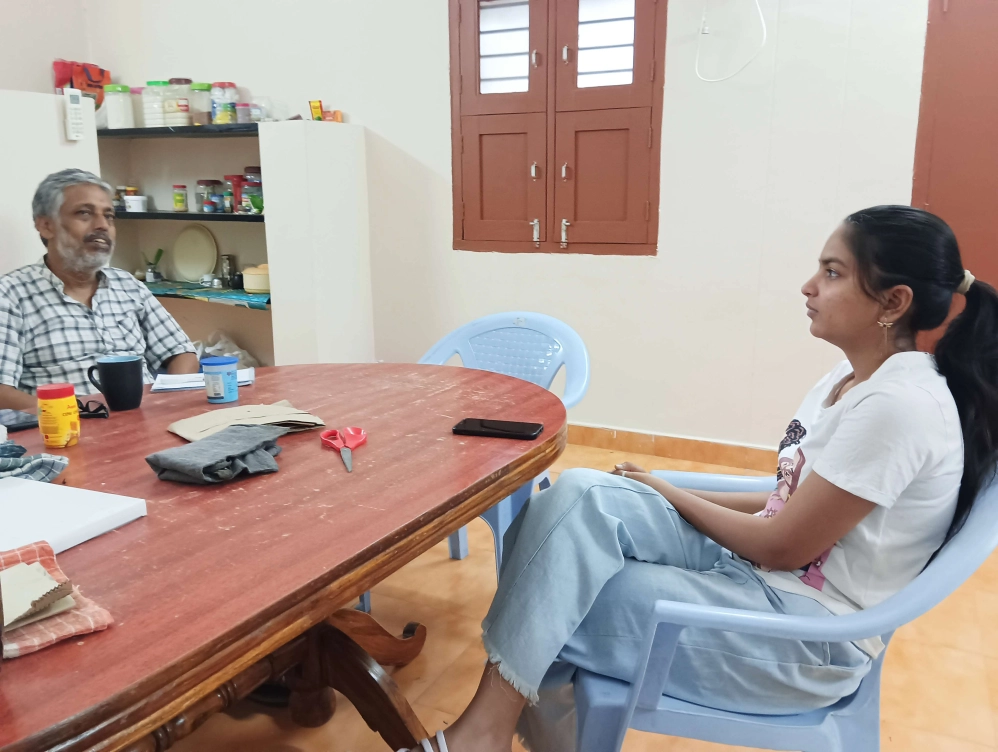When I went to play tennis with my son, we saw that the court was occupied. A daughter and father pair were playing at the court and said they would take some more time to vacate the court. We waited for a few minutes. I was checking with my son if he would like to do anything else. He refused. suddenly the father came to us and said if you want, your son and my daughter can play. I felt it was a pretty fair deal and we agreed. They both played for quite some time and enjoyed their game.
I reflected on the incident and felt it was such a win-win situation. Both parties got something from the deal. It was an example of collaborative problem-solving. It was a mutual agreement by understanding the needs of each other.
We come across such negotiations in our everyday life. It might be negotiating a job offer, asking for a night out, buying an expensive device, doing some projects with a team, or buying fruits and vegetables. Negotiation is a valuable like-skill.
Negotiation is the process of reaching an agreement between two or more parties with different interests but want to engage with each other. It is not about two parties defending their territory. Negotiation becomes all the more important especially when we are required to work collaboratively . It requires skills like effective communication, understanding of the problem, emotional intelligence, and a willingness to collaborate.
Negotiation scenarios for young adults
Learning Projects – Negotiating deadlines, requesting additional support, or task allocation
Relationship Dynamics – Negotiating household chores, vacation plans, or resolving conflicts.
Workplace – Negotiating salary, benefits, job responsibilities, or project deadlines.
Family Decisions – Negotiating nights out with friends, vacation plans, or household chores.
Social Situations – Negotiating group activities, sharing resources, or setting boundaries.
Importance of Negotiation
- Empowerment: Negotiation gives one the confidence to voice their needs and desires. It’s about standing up for yourself and advocating for what you want.
- Conflict Resolution: Effective negotiation helps young people resolve conflicts amicably, whether with friends, family, or colleagues.
- Career Advancement: As youth transition into the workforce, negotiation skills become crucial. They can help in salary discussions, project responsibilities, and workplace dynamics.
- Building Relationships: Good negotiators can foster stronger relationships by finding win-win solutions that satisfy all parties involved.
Outcome of Negotiation
- Efficient agreement – that leaves both parties in better shape than they were before the negotiation
- It Should not damage the relationship between the two parties
Essential Skills for negotiation
- Planning – Understanding what you want to achieve in a negotiation is important. This takes us to the interests of both parties, not the power and position. One must have clear boundaries of acceptable and non-acceptable outcomes. You might look at the common ground which will make both parties happy. Have a plan for other alternatives in case plan A does not work. Find out the area of negotiations where the interests of the two parties overlap. There is no single answer ever.
- Communication – It’s critical to articulate your thoughts and actively listen to others’ ideas and needs. Most of the time the interpretation of information becomes a hurdle. Both sides feel they are not being heard. Our language choice masks our true needs. For example, say you want to “go out” when you want to connect with friends and socialize. Underlying need might be Social interaction and companionship. Cultivating a mindset geared towards collaboration can lead to better outcomes. Check this article to understand the importance of communication.
- Emotional Intelligence – Negotiation shall be done based on reasoning and merit. Disagreements might convert into hostility in any negotiation. Negotiation is not about scoring the points. It is about safeguarding the interests of all the stakeholders. Emotional intelligence helps us to navigate complex emotions with a better understanding. We can’t negotiate with someone whom we don’t understand empathetically. To understand someone does not mean to agree with them. Never succumb to pressure but go with the principle objective. Pressure may come in any form but look for objectivity and reasoning.
Self-Negotiation
At times, negotiation is not just with others, we negotiate with ourselves as well. Self-negotiation refers to the internal dialogue and decision-making process individuals engage in when weighing their options, desires, and values. Self-negotiation involves assessing one’s needs, desires, and goals while considering the potential outcomes of different choices. This internal negotiation can manifest in various scenarios, such as deciding how to allocate time between work and socializing, determining personal values in relationships, or contemplating career paths.
Younger people face self-negotiation in various ways like – learning commitments, relationship dynamics, career aspirations, etc. Effective self-negotiation can be facilitated by following strategies
- Setting clear goals
- Practicing self-reflection
- Analyzing options according to priority
- Seeking feedback
- Being patient
Movies are great source to understand various styles of negotiation. Following is the list of some of my favorite movies on negotiation –
Movies about negotiation
- The social network – The movie emphasizes the importance of trust, communication, and strategic thinking in negotiation.
- Moneyball – The film highlights the importance of innovation, persistence, and thinking outside the box in negotiation.
- Erin Brocowhich – The film emphasizes the relentless pursuit of justice, effective communication, and building trust to negotiate against powerful and influential adversaries.
- Thirteen Days – Provides insight into crisis negotiation, collaborative problem solving, and effective decision making
- The Founder – Emphasizes the need for trust, effective communication, and the preservation of relationships to achieve successful outcomes in negotiation
- The Negotiator – Demonstrates the role of effective communication, the importance of trust-based relationships, emotional intelligence, and strategic thinking during stress.
So, the next time you find yourself in a situation where you need to negotiate, remember: it’s not just about getting what you want; it’s about building relationships and finding solutions that work for everyone involved. Happy negotiating!
